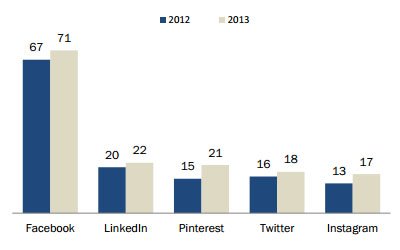
Doctors need quick access to patient information to provide the best medical care. Access to this information results in the best treatment, and in many cases, these treatments are time-sensitive. Accessing patient information can mean the difference between life and death.
The United States has many regulations regarding medical document management for a reason. When errors occur in document management, it can have significant consequences on patients’ wellbeing.
Even with these regulations, many medical centers only achieve the bare minimum when it comes to document management. Electronic document management can change that for the better.
When it comes to the aspects of medical care often overlooked, consider the most important factors. How can electronic document management assist hospitals and other medical facilities?
Quick Information Access for Emergency Room Visits
When a person enters the emergency room for the first time, the doctors and nurses know very little about that person. The doctors and nurses may know the person’s name and reason for being in the ER, but the information they don’t know can impact this patient’s chances of survival. For example, they don’t see a patient’s medical history, allergies, or medications.
In this case, the patient’s doctors must have immediate access to that patient’s information. With quick access, doctors can make sure they provide the best care based on the patient’s medical history.
If doctors can’t access this information quickly enough, they risk giving the patient a misdiagnosis or the wrong medication. In emergency room settings, delayed information can have disastrous consequences.
Fortunately, with electronic document management, doctors don’t have to worry about delays. They can access critical information as quickly as possible and give patients the care they need in emergency situations.
Strengthening Patient Trust
A significant advantage of electronic document management in healthcare is the privacy that it provides patients.
Legally, patients are entitled to privacy no matter what type of documentation their healthcare providers utilize. However, paper documentation leaves significant room for error. Paper documents can pass through many people’s hands, and sometimes mistakes are made, even with the best of intentions.
Password-protected electronic documents do a good job of keeping patient information safe. Healthcare providers know who accesses their patients’ medical records and can remain in control.
Since patient information is safer with the proper document management, patients can trust their providers to protect their information and rest assured that their medical records are secure.
When patients trust that their information is safe, they’re more confident in sharing information with their healthcare providers. Healthcare providers can then use this information to provide the best care. When a doctor has access to complete information, a more accurate diagnosis will likely result. This provides a personalized approach to medical care that benefits patients and possibly saves lives.
Not All Medical Document Management is the Same
Electronic document management offers a significant advantage over paper systems. However, not every electronic document management system is the same. Some systems perform more seamlessly than others. When choosing the best electronic document system, it’s essential to consider which system benefits patients and providers.
Smooth Updates Across Platforms
In the medical field, the same patient record may exist in multiple places at once. A patient’s primary care doctor, insurance company, and specialists may have a record of the patient’s history. It’s important to make sure that the documents are truly the same across all locations. When a specialist prescribes a new medication, the insurance company and primary care doctor need to be aware of the change. Important information like this prevents adverse drug interactions and other potentially dangerous issues.
The best medical record systems come with smooth and efficient updates across all platforms. Not only does this ensure the best care for the patient, but it also alleviates a lot of communication burdens.
Simple Digitization Benefits Medical Professionals
Today, most medical professionals know that digital records have a significant advantage over analog records. However, some medical professionals hesitate to switch to a digital system, especially if they have been using a paper system for decades. Without the right tools, changing from an analog system to a digital one can be difficult and time-consuming.
The good news is that not every system comes with those challenges. You can find a service that uses a simple capture tool to digitize analog content. This option makes the process less tedious so that you can switch over to your new system as quickly and painlessly as possible.
The Best Digital Document Management
In medical situations, the right document management system isn’t just convenient; it can save lives. At the very least, it ensures that patients have access to the best and most efficient care.
Some enterprise management solutions provide all of the necessary features. Healthcare entities should look for electronic document management solutions that meet their needs and more.

Founder Dinis Guarda
IntelligentHQ Your New Business Network.
IntelligentHQ is a Business network and an expert source for finance, capital markets and intelligence for thousands of global business professionals, startups, and companies.
We exist at the point of intersection between technology, social media, finance and innovation.
IntelligentHQ leverages innovation and scale of social digital technology, analytics, news, and distribution to create an unparalleled, full digital medium and social business networks spectrum.
IntelligentHQ is working hard, to become a trusted, and indispensable source of business news and analytics, within financial services and its associated supply chains and ecosystems





























